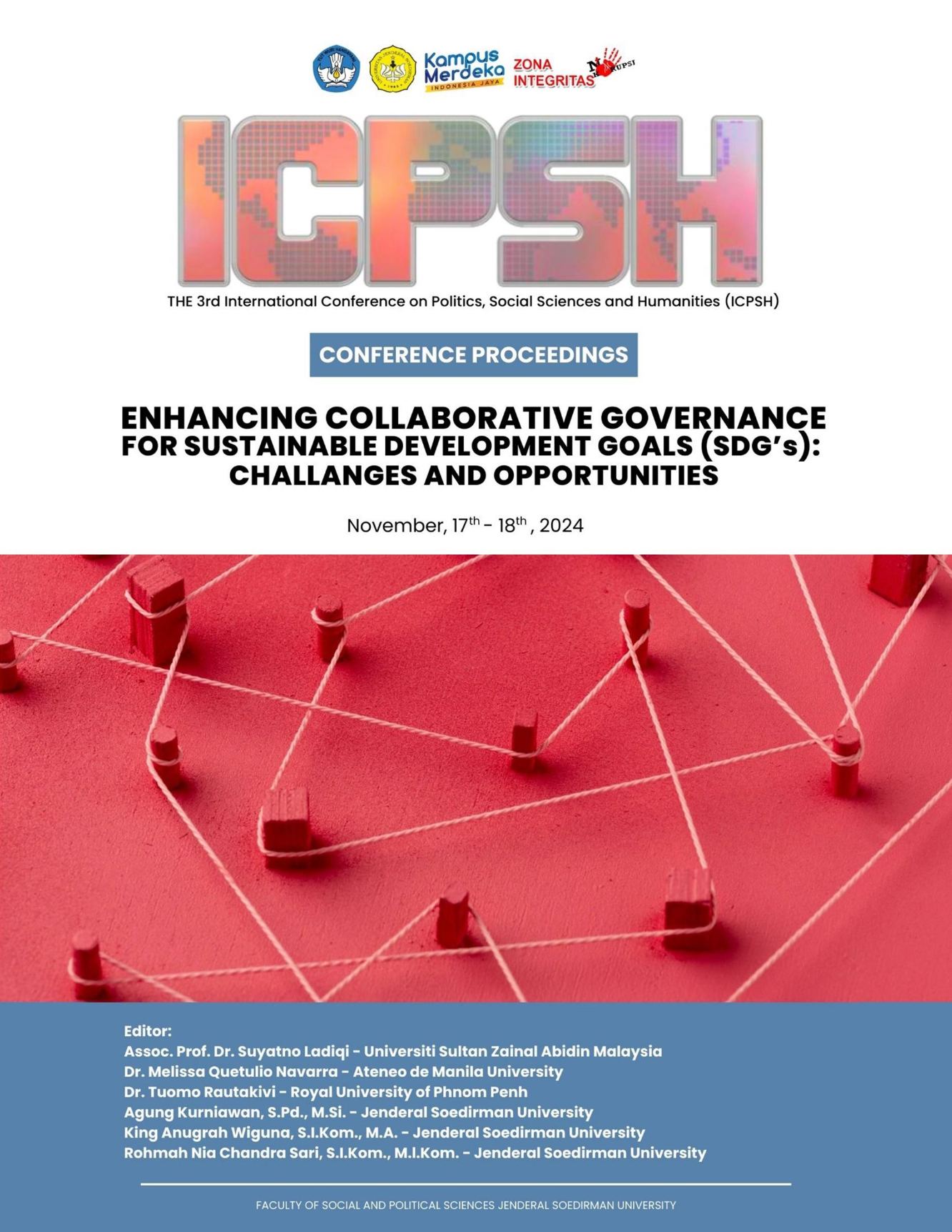Policy Innovation and Collaborative Governance in the Creative Economy for SDG Achievement
Abstract
The creative economy plays a crucial role in supporting sustainable economic growth and achieving the
Sustainable Development Goals (SDGs), particularly SDG 8 and SDG 12. However, cross-sectoral
collaboration presents significant challenges, requiring innovative strategies for managing this sector
effectively. This study aims to analyze collaborative strategies that foster innovation in managing the
creative economy to achieve the SDGs. The methodology involves case studies with data collected through
literature review and policy document analysis. Key findings reveal that multi-stakeholder collaboration
involving governments, private sectors, and communities is essential in creating an ecosystem that
supports the creative economy. Case studies from various countries illustrate how innovation in policy,
technology, and business models can enhance synergy among actors. Despite challenges such as differing
interests and unsupportive regulations, solutions through policy innovation and capacity building of local
actors can strengthen collaboration. In conclusion, the creative economy holds significant potential for
driving sustainable development. The practical implications for policymakers and creative economy
stakeholders include recommendations to promote innovative, collaborative governance, which is crucial
for achieving the SDGs and maximizing the creative economy’s potential for global economic growth. This
research provides valuable insights and guidance for policymakers and stakeholders in advancing the
creative economy sustainably.



